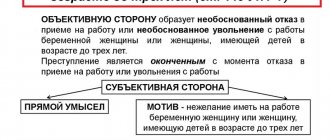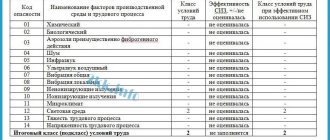According to labor legislation, internal labor regulations must be developed and approved at each enterprise. Such a document serves as the main instruction for employees of the enterprise, and these rules prescribe all the nuances of the labor process and labor discipline: from the start time of the working day to the procedure for issuing bonuses and maintaining the trade secrets of the enterprise.
It would seem that there is such a particularly terrible thing if you come to work a minute later than the official start of the working day? But in fact, this is a violation of labor discipline, which can entail serious penalties. Let's try to figure out what compliance with labor discipline consists of, what offenses can be considered as a violation of it, and how this threatens the employee.
The concept and meaning of labor discipline
Labor discipline is an essential component of the work process. The importance of work discipline cannot be overestimated. It is on its compliance that the implementation of the labor standards of the enterprise and the order of its functioning depend.
The concept of “labor discipline” is understood as compliance by both parties to the employment contract with the rules of conduct prescribed in the employment contract, the labor code and other regulations. In turn, when signing an employment contract, both the employee and the manager agree to comply with all its conditions, including compliance with labor discipline.
Do you need legal assistance?
We will resolve the most complex labor dispute in favor of the client
+7
Obligation of the employee and employer to comply with labor discipline
The Labor Code of the Russian Federation distinguishes three types of responsibilities: general responsibilities, employee responsibilities, and management responsibilities.
General responsibilities apply to both parties to the employment contract, i.e. both to the employee and to the manager. They look like this:
- fulfillment of duties prescribed in the employment contract and the Labor Code of the Russian Federation;
- compliance with the internal regulations of the enterprise;
- compliance with approved labor standards;
- compliance with labor protection requirements;
- preservation of the property of the enterprise and employees.
Labor obligations to comply with labor discipline are prescribed in the employment contract. However, this section is often taken outside the scope of the employment contract and is drawn up in the form of an additional agreement, a notification agreement or a provision on internal labor regulations. If, upon hiring, an employee was not informed about internal labor regulations, then he has the right not to comply with them.
In turn, management does not have the right to demand that an employee fulfill them until he becomes familiar with them. To strengthen labor discipline, management has the right to periodically conduct certification of employees for knowledge of labor discipline and its compliance.
Rewards and punishments
In Art. 191 of the Labor Code of the Russian Federation talks about incentives for work. They are defined as:
- Gratitude;
- bonuses;
- giving a gift;
- presentation of a certificate of honor;
- nomination for the title of best in the profession.
Other types of incentives may be reflected in local documents: PVTR, collective agreement, in addition, in disciplinary statutes and regulations approved by the Government for special categories of employees. Outstanding labor achievements may be recognized with state awards.
Penalties for negligent workers are strictly limited. The employer has the right:
- make a remark;
- reprimand;
- dismiss the employee.
The use of arbitrarily invented punishments, for example, fines for poor performance, reduction of rest time, is illegal. Certain categories of employees may be subject to additional penalties in accordance with industry and intersectoral statutory documents and regulations.
On a note. Separate categories include railway workers, employees of paramilitary mine rescue groups, customs officers, nuclear workers, sailors, and maritime workers. The effect of professional statutes and regulations does not apply to all workers in the industry, but only to those whose professional actions are potentially dangerous.
Responsibilities of employees and managers
According to the Labor Code of the Russian Federation, an employee is obliged to:
- fulfill obligations within the time strictly established by internal regulations;
- is responsible for fulfilling his direct duties;
- achieve the production goals set by management;
- preserve the property of the enterprise in the form in which it was at the time of employment of the employee;
- comply with labor protection requirements;
- If dangerous situations arise at the enterprise, notify management about them.
The manager also has a number of obligations, the fulfillment of which is a condition for maintaining labor discipline:
- fulfill the conditions and obligations specified in the employment contract;
- organize safe working conditions for employees;
- strictly fulfill financial obligations to the employee;
- provide the employee with all the necessary working tools, documents and other means on the availability of which the implementation of labor standards depends;
- promptly inform employees regarding changes in regulations and coordinate with them changes in local regulations;
- timely fulfill obligations prescribed by federal laws;
- eliminate violations at the enterprise identified by trade union committees;
- eliminate the everyday needs of employees that prevent them from performing their job duties;
- compensate employees for harm suffered at work;
- fulfill the obligations specified in the labor code, in the collective agreement, in local regulations.
Thus, it becomes clear that labor discipline implies not only the employee’s subordination to management. Moreover, management has many more points that require fulfillment in order to maintain labor discipline, because The range of his activities includes the organization of the labor process and the organization of the workplace.
The concept of “labor discipline” implies not only responsibilities, but also the rights of both parties to the employment contract.
How is the punishment chosen?
Before choosing what responsibility the violator of labor discipline bears, the employee has the opportunity to write an explanatory note. As a result, the employer has the right to draw up a report after two days. Based on the explanation or the act of failure to provide explanations, management must issue an order to apply the disciplinary sanction chosen by it. This order can be announced to the violator against signature within three working days. If the employee refuses to familiarize himself with the order, then management has the right to draw up a report about this.
Today we lifted the curtain on some tricky questions. You can also continue breaking the covers by watching our video about three myths about labor protection
Rights of employees and managers
An employee has the right to:
- termination, modification and conclusion of an employment contract on the terms and with requirements corresponding to the Labor Code of the Russian Federation and other federal laws;
- regular and timely receipt of wages in the amount specified in the employment contract;
- regular and timely rest (vacation, weekends, holidays);
- an equipped workplace that meets labor safety requirements and is necessary to comply with labor standards;
- obtaining professional training and retraining to master new equipment and comply with labor standards when they change;
- management of the organization to the extent specified in the employment contract and the Labor Code of the Russian Federation;
- obtaining complete information about management’s fulfillment of the obligations specified in the labor and/or collective contract;
- receiving compensation for harm suffered at the enterprise;
- receiving social insurance in accordance with federal laws.
The manager has the right to:
- conclusion, termination and amendment of labor contracts in accordance with the Labor Code of the Russian Federation;
- require employees to fulfill the obligations specified in the employment contract and the Labor Code of the Russian Federation;
- encourage employees for exceeding labor standards and other merits in the labor process;
- bring employees to disciplinary liability for violating their duties prescribed in the employment contract and the Labor Code of the Russian Federation (including legal regulation of labor discipline).
- Organization of training, advanced training or retraining of an employee.
Results
- The employer is obliged to create conditions that allow compliance with labor discipline and develop a package of internal documents regulating the labor process.
- The violator can be punished only according to the Labor Code of the Russian Federation.
- The list of incentives can be expanded at the discretion of the organization and reflected in local regulations.
- Financial liability cannot be applied arbitrarily. You should be guided by legal norms and rules.
- There are time limits for imposing sentences.
- Violations of labor discipline must be documented.
- Dismissal of an employee without sufficient grounds is prohibited.
Organizational and economic conditions for creating labor discipline
Labor discipline is also understood as the creation by the manager of material, economic and organizational conditions for the employee and for him to fulfill labor standards. Also, the range of responsibilities of a manager includes the official consolidation of labor procedures and rules. To perform this function, the manager is vested with powers, which include the development and approval of local regulations that prescribe procedures and rules of conduct for employees.
Thus, it becomes clear that to fulfill his duties the manager has a number of powers:
- development and approval of local regulations prescribing internal regulations and rules of conduct for employees;
- requiring employees to fulfill the duties specified in the employment contract, the Labor Code of the Russian Federation and local regulations;
- specifying the duties and rights of employees taking into account the Labor Code of the Russian Federation and the employment contract;
- requiring employees to comply with the company’s labor regulations;
- assessment of the employee’s performance and the degree of compliance with labor standards;
- rewarding an employee for high-quality performance, exceeding standards, or for performing duties that do not apply to him in accordance with the employment contract and the Labor Code of the Russian Federation;
- bringing employees to disciplinary liability in accordance with the Labor Code of the Russian Federation, employment contracts and/or other regulations;
- conducting a disciplinary investigation. There are three methods of ensuring labor discipline:
- belief;
- compulsion;
- encouragement
Internal rules, charters, regulations
Internal regulations imply rules of conduct for employees at an enterprise that comply with the Labor Code of the Russian Federation and local acts that are based on labor legislation. Internal regulations provide for the behavior of employees not only during working hours, but also during legal rest while on the territory of the enterprise.
Internal regulations are developed by management, but in strict accordance with the Labor Code of the Russian Federation and the opinions of the representative body of employees. At enterprises where trade unions are organized, the manager can also take into account the opinion of the trade union committee.
However, the Labor Code of the Russian Federation states that the opinion of the trade union is not binding for the manager, therefore he has the right not to take it into account under any circumstances. Some sectors of the national economy establish internal regulations, developed and approved by the government of the Russian Federation and constituting the labor discipline of the enterprise.
Standard internal regulations consist of seven points:
- main provisions, target audience, goals and objectives of internal regulations;
- rules and procedures for dismissing and hiring employees;
- a list of the employee’s main responsibilities;
- a list of the main responsibilities of management;
- schedule of the working day, week, month, structure of the working week, list of responsibilities for the period of the working day;
- the procedure and possible measures for rewarding employees for certain merits;
- procedure and possible disciplinary measures for employees for certain violations.
All these rules are mandatory for each employee and must be communicated to him at the hiring stage.
Author of the article
Examples of violations of labor discipline
The most significant example of violation of labor discipline is absenteeism - unauthorized absence from the workplace for three or more hours without warning to the immediate supervisor and without good reason. At the same time, there are often cases when an employee, for example, on the way to work may get into a traffic accident or get stuck in an elevator and have no way to warn the boss. Therefore, before imposing a penalty and thinking about dismissing a negligent employee, it is necessary to carefully study all the circumstances of the disciplinary offense. Do not forget that the employee can appeal the received penalty through the court or government authorities.
ipinform.ru







